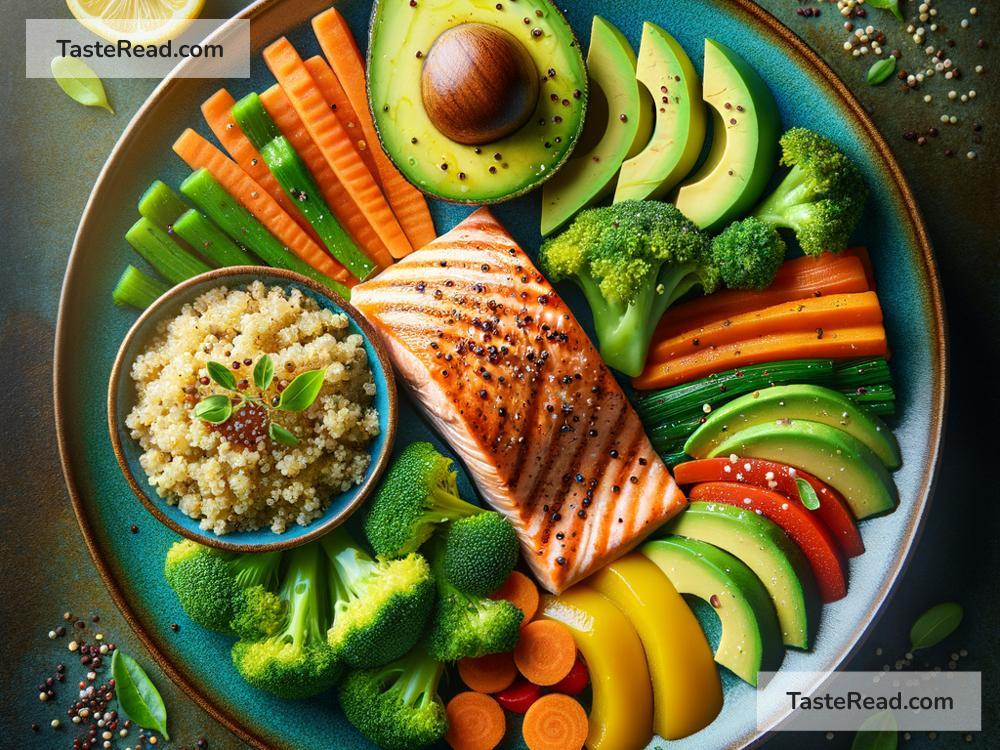The Benefits of a Balanced Diet for Heart Health: Supporting Cardiovascular Function
Your heart works hard every day, pumping oxygen-rich blood to your entire body. It’s a strong and vital organ, but like the rest of your body, it needs the proper nutrients and care to stay healthy. One of the best ways to protect and support your heart is through a balanced diet. Eating nutritious foods not only provides energy but also promotes long-term cardiovascular health. Let’s explore the key benefits of a balanced diet for heart health in simple, easy-to-understand terms.
What is a Balanced Diet?
A balanced diet includes a variety of foods that provide essential nutrients, like vitamins, minerals, protein, healthy fats, and carbohydrates. The goal is to eat the right amounts of these nutrients to maintain good health and prevent diseases. Think of your body like a car: it needs high-quality fuel (healthy food) to run smoothly. Similarly, your heart relies on wholesome food to function properly.
How Does a Balanced Diet Benefit Your Heart?
1. Keeps Cholesterol Levels in Check
One of the biggest risks to your heart health is high cholesterol. When there’s too much “bad” cholesterol (low-density lipoprotein or LDL) in your blood, it can build up in your arteries and make it hard for blood to flow. A balanced diet that’s rich in fiber, fruits, vegetables, and healthy fats can lower LDL cholesterol and boost “good” cholesterol (high-density lipoprotein, or HDL). Foods like oats, beans, nuts, and fatty fish (like salmon) are excellent for keeping cholesterol under control.
2. Maintains Healthy Blood Pressure
High blood pressure, or hypertension, makes your heart work harder to pump blood and increases the risk of heart disease and stroke. A balanced diet can help lower blood pressure naturally. For example, eating potassium-rich foods such as bananas, sweet potatoes, and spinach can help balance the effects of sodium (salt) and keep your blood pressure steady. Limiting overly salty or processed foods is also crucial.
3. Supports a Healthy Weight
Carrying extra weight puts stress on your heart. It increases the risk of heart disease, stroke, and even diabetes. A balanced diet helps you manage your weight by avoiding excess calories and promoting nutritious choices. Whole grains, lean proteins, fruits, and vegetables fill you up without adding unnecessary or harmful fats and sugars to your diet. Maintaining a healthy weight significantly reduces the burden on your heart.
4. Reduces Inflammation
Processed foods, sugary drinks, and fried snacks can cause inflammation in the body. Chronic inflammation is bad for your heart because it can lead to artery damage and other cardiovascular issues. On the other hand, foods rich in antioxidants—like berries, nuts, seeds, and leafy greens—help fight inflammation and protect your heart. Think of these foods as your heart’s defense team!
5. Improves Blood Flow
Good nutrition helps maintain smooth and efficient blood flow through your arteries. Healthy fats, like those found in olive oil, avocados, and fatty fish, contribute to flexible arteries and improved circulation. This ensures your heart gets the oxygen and nutrients it needs to perform its job effectively.
What Foods Should You Eat for a Healthy Heart?
When building a balanced diet, focus on these heart-friendly options:
-
Fruits and Vegetables: Aim for a colorful variety! Dark, leafy greens like kale and bright, sweet fruits like oranges provide vitamins and minerals that support heart function.
-
Whole Grains: Foods like brown rice, whole wheat bread, quinoa, and oats are great sources of fiber that help lower LDL cholesterol.
-
Lean Proteins: Opt for sources like fish, chicken, beans, and tofu, which contain less saturated fat than red meat.
-
Healthy Fats: Choose heart-friendly fats found in nuts, seeds, avocados, and olive oil. Avoid trans fats found in fried and processed foods.
-
Low-Fat Dairy: Dairy products like yogurt and milk can be part of a heart-healthy diet when consumed in moderation.
-
Herbs and spices: Use these in place of salt to flavor your meals. For example, garlic, turmeric, and cinnamon have heart-protective properties.
Foods to Limit or Avoid
Not all foods are helpful to your heart. It’s best to limit these:
-
Processed Foods: Chips, frozen meals, and sugary snacks are often loaded with unhealthy fats and sodium.
-
Sugary Drinks: Sodas and energy drinks can raise blood sugar levels, leading to weight gain and heart strain.
-
Fast Food: Burgers, fries, and fried chicken may be tasty but are high in trans fats and salt.
-
Red Meat and Butter: Consuming these in excess can lead to clogged arteries due to their high levels of saturated fat.
Easy Steps to Start Eating for Your Heart
If you’re ready to take care of your heart through a balanced diet, start with small changes:
- Swap white bread for whole-grain bread.
- Replace chips with a handful of nuts or a piece of fruit.
- Use olive oil instead of butter for cooking.
- Add a side of vegetables to every meal.
- Drink more water and cut back on sugary beverages.
Building heart health through diet doesn’t have to be complicated. The key is to focus on fresh, whole foods and avoid processed items as much as possible.
Conclusion
Your heart is a powerhouse that works tirelessly for your body. By giving it the nutrients it needs through a balanced diet, you can reduce your risk of heart disease and enjoy a healthier, longer life. Eating well isn’t just about avoiding harmful foods—it’s about embracing heart-friendly options that help you feel great inside and out.
Start making small changes today, and your heart will thank you tomorrow and for years to come!


